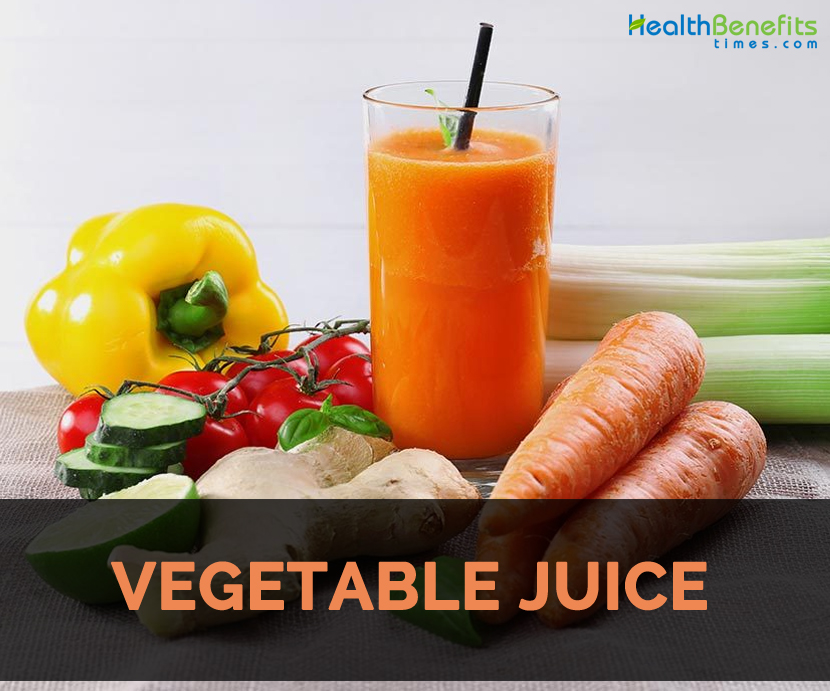
How to Make Vegetable Juice?
Preparing vegetable juice is easy with the availability of right tools in the kitchen. Juicer or blender is must for making vegetable juice. Using a juicer provides the option to strain out fibrous material. The common mistakes usually people make is not discarding seeds from certain vegetables or not eliminating damaged or bruised areas of vegetables. The bruised areas are unpleasant and contain compounds that make people sick.
Vegetable Juice recipe
Ingredients:
Directions:
Put all the ingredients mentioned above in the vegetable juicer. Then infuse juice gently. Consume it immediately.
Health Benefits of Vegetable Juice
Vegetable juice offers notable benefits such as promote nutrient uptake, increase hydration, protect heart, detoxifies body, prevent hair loss, supports skin health, lowers chances of chronic diseases, strengthen immune system and promote circulation.
- Chronic ailments
Vegetables contain significant antioxidants such as phytonutrients, beta-carotene, lycopene and phenolic compounds. Antioxidants assist body to combat free radical effects including mutation of healthy cells into cancerous ones. Daily intake of vegetable juice reduces the chances of other chronic ailments such as cardiovascular disease, diabetes and autoimmune diseases.
- Healthy heart
Juices are loaded with ample potassium in it that helps to lower the blood pressure and provide relief from strain in cardiovascular system. Moreover, high content of Vitamin C and iron stimulates circulation and promotes collagen content in the body. It also lowers the chances of damaged blood vessels and arteries.
- Effective brain function
Studies have showed antioxidants in eliminating plaque in neural pathways and lowers beta-amyloid deposition. It promotes memory, basic function, and concentration and even slows down or halts neurodegenerative diseases.
- Loaded with nutrients
Minerals and antioxidants present in vegetable juice cleanses colon and re-balances bacteria in the gut. Other nutrients promote bioavailability of certain minerals and vitamins that could be absorbed by the body making mealtimes efficient.
- Skin health
Vegetable juice has high content of antioxidants that are found be effective for lowering oxidative stress that occurs in skin often. Daily intake of vegetable juice promotes appearance of blemishes, wrinkles, age spots and scars by providing relief from various inflammatory conditions and infections such as acne, eczema, psoriasis and rosacea.
- Hair health
Hair loss is caused due to the nutrient deficiency in the body. Vegetable juice is rich in minerals and nutrients required for healthy hair such as beta carotene and vitamin C. A glass of vegetable juice acts wonders for physical appearance.
- Strengthen immunity
Vegetable juice has high content of Vitamin C. A glass of vegetable juice helps to obtain daily recommended intake for ascorbic acid. It boosts immune system as Vitamin C assist in stimulating white blood cells production. Actions of other antioxidants such as lycopene support immune system in preventing chronic disease and oxidative stress.
- Hydration
Vegetable juices have high content of water but some tougher vegetables should be combined with water to obtain good consistency. This refers that body is hydrated with an intake of vegetable juice throughout the day supporting digestion, metabolic speed, energy levels and cognitive function.
- Enhance circulation
Most of the vegetables have high content of iron. Vegetable juice supports in circulation and production of hemoglobin and red blood cells. Dark and leafy greens have rich iron content and make it a perfect antioxidant packed beverage that reduces cholesterol levels and lowers the strain on cardiovascular system.
References:
https://en.wikipedia.org/wiki/Vegetable_juice
https://www.organicfacts.net/vegetable-juice.html
https://draxe.com/recipe/basic-juice/
https://www.organicfacts.net/vegetable-juice.html
https://food.ndtv.com/food-drinks/vegetable-juices-6-interesting-health-and-beauty-benefits-1833709
Comments
comments